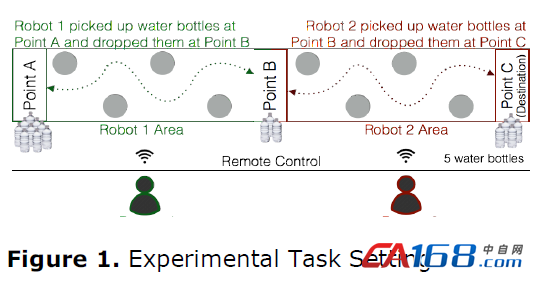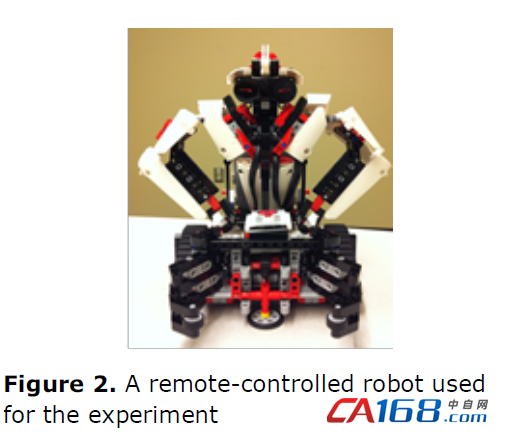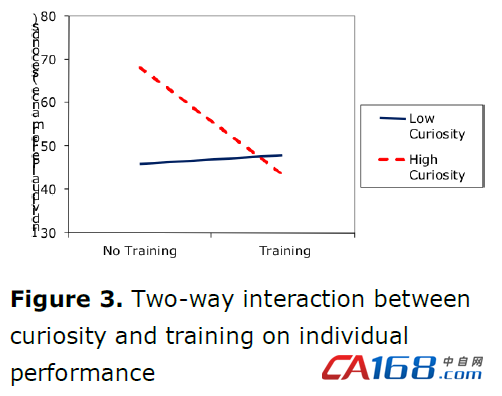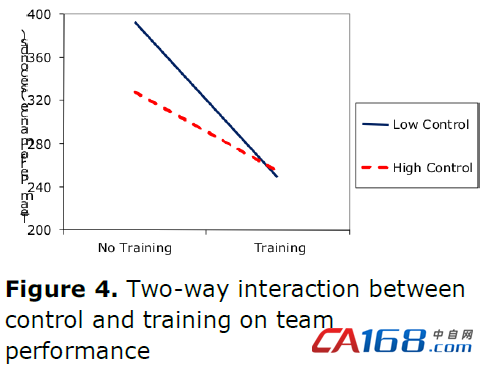Robots are increasingly adopted in teams in many areas [6]. For instance, search and rescue teams deploy remote-controlled robots to save human lives[1]. In such teams, the ability to use robots is central to their success [1,2]. Despite the importance of this topic, there is much we do not know about facilitating better performance in teams working with robots [2,7].Training robot operators has been one approach to promoting better performance in such teams [4]. For example, training in teams working with robots has led to better coordination and higher level of trust [4].Unfortunately, training does not always lead to increases in performance [4,8]. We believe that understanding when training is likely to be effective or not is vital to promoting better performance in teams working with robots.There are two psychological states associated with both training and performance: exploration and exploitation[3,5]. Exploration as it pertains to technology use is often associated with curiosity. Curiosity as a psychological state can lead individuals to play with the technology and discover new features [5]. Exploitation is often associated with the psychological state of control as it relates to technology [5]. In the short term, curiosity and control has been found to have opposite relationship with performance. Curiosity decreases short-term performance with technology, whereas control increases short-term performance [3]. We propose that the effectiveness of training is likely to depend on the user’s psychological state while employing the system. Both curiosity and control have been associated with training and performance [3,5]. Therefore, we propose that these two psychological states are essential to understanding when training is more or less effective in increasing performance in teams working with robots. The goal of this preliminary study is to investigate conditions which help determine when training becomes more or less effective in increasing performance. To do this, we conducted a lab-based experiment, in which we examined the impacts of training on performance in 30 teams of two humans working with two robots depending on their state of curiosity and control. Results of this study generally shows evidence of influence of curiosity and control on the impacts of training. This study will open a new opportunity of studying teamwork for scholars in CSCW as well as teams working with robots.
Moderation Effects of Curiosity and Control in the Impacts of Training
We propose that the impacts of training on performance will be moderated by the level of curiosity and control in teams working with robots. That is, although training is known, in general, to increase performance, the impacts can appear differently based on the level of curiosity and control during the training. When teams perceive higher level of curiosity of robots, they will likely explore features of robots through risk taking, innovation, and flexibility [3]. These behaviors will foster team’s engagement in the training and in turn increase overall task performance. Thus, training will be more effective in increasing performance when the level of curiosity is high.
H1(a & b): Training will increase (a) individual and(b) team performance of teams working with robots, when teams perceive higher level of curiosity than lower.
When feeling in control, teams will likely perform the task with behaviors including refinement, production, and efficiency in mind [3]. Such behaviors are focused on achieving their goal, which will lead to better performance. However, for those who do feel lower level of control, training will lead them to engage with effective ways of using the robots to fulfill the task.
H2(a & b): Training will increase (a) individual and (b) team performance of teams working with robots,p < .05) (Figure 4). No interaction effect was found
with individual performance (= 4.78, p = .22).
Implications for Theory and Practice
The preliminary results have potential implications for theory and practice of teams working with robots. First, research should examine impacts of training in teams working with robots. We found that training caused different consequences in individual and team performance depending on the level of curiosity and control. This suggests that the impact of training can be altered by psychological states of individuals in the training. However, much more research is needed to find more circumstances that can determine impacts of training in teams working with robots.
Second, our preliminary results may signal a need to revisit some of our prior literature on exploration and exploitation of technology. Currently, it is assumed that curiosity is bad for short term performance and good for long term performance [3]. This leads to the discussions around the trade-off between short vs. long term performance. Our results suggest that this may not be the case. When individuals are trained, curiosity does not have to lead to lower performance. Therefore, it is possible to encourage curiosity in short term without suffering performance losses while still incurring the potential long term performance gains.
Conclusion
原文:CSCW '16 Companion, February 27 - March 02, 2016, San Francisco, CA,
USA ACM 978-1-4503-3950-6/16/02.
http://dx.doi.org/10.1145/2818052.2869121











共0条 [查看全部] 网友评论